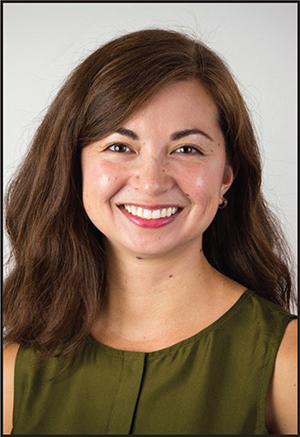Robin Davis | Movers & Shakers 2022—Innovators
Robin Davis knows that “accessibility isn’t one person’s domain, but everyone’s responsibility.” This shows in the work she does with her colleagues at North Carolina State University (NCSU) Libraries in the User Experience department and on the recently formed Accessibility Committee, as well as mentoring students.
 |
CURRENT POSITIONUser Experience Librarian, North Carolina State University Libraries DEGREEMLIS, University of Illinois Urbana-Champaign, 2012; MA, Computational Linguistics, City University of New York, 2016 FAST FACTDavis loves road trips and has been to 41 U.S. states. “Just nine to go!” FOLLOWPhoto by Chuck Samuels, NC State University |
Active Accessibility
Robin Davis knows that “accessibility isn’t one person’s domain, but everyone’s responsibility.” This shows in the work she does with her colleagues at North Carolina State University (NCSU) Libraries in the User Experience department and on the recently formed Accessibility Committee, as well as mentoring students. “Together, we know that accessibility is a process, not a project,” she says. “It’s something we’re always working toward.”
Her interest began in a Universal Design for Learning workshop. Her team moved to mostly remote user research, which is more convenient for users and allows the team to increase the number of active projects they can do and the frequency with which they can conduct user research.
Davis’s team created sensory maps that highlight study spaces in NCSU’s main library buildings that have three aspects: quiet, lack of crowding, and natural or warm light with controllable lighting or a white noise speaker. She also coordinated with two student workers to fix more than 500,000 web accessibility issues. In another project, Davis led the User Experience team through library spaces while having them reconsider those spaces from a variety of viewpoints.
For Davis, accessibility is an “Of course.” “Of course we should consider the accessibility of a new service from the start,” she says. “Of course we should design our website to be usable by as many people as possible. Of course we should remove barriers to information access—that’s what libraries do.”
Add Comment :-
RELATED
ALREADY A SUBSCRIBER? LOG IN
We are currently offering this content for free. Sign up now to activate your personal profile, where you can save articles for future viewing









